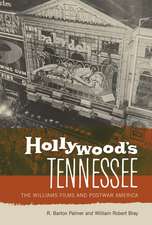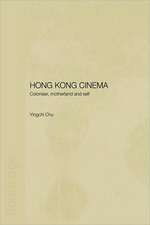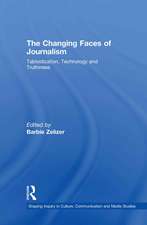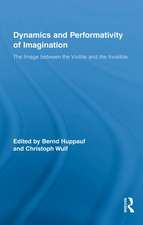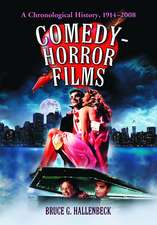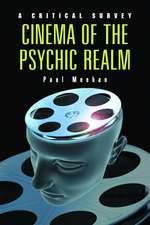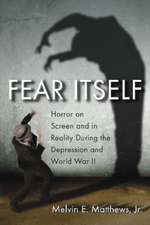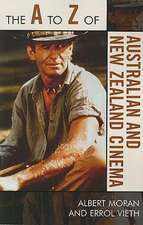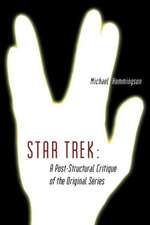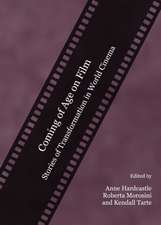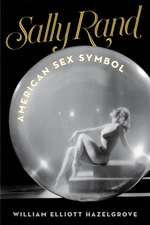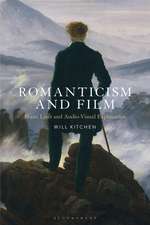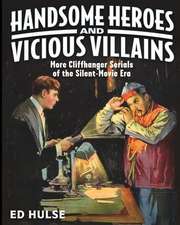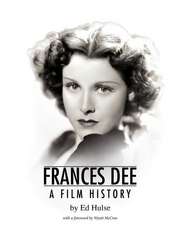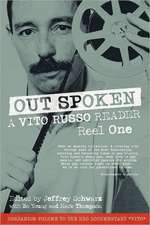Film, Negation and Freedom
Autor Will Kitchenen Limba Engleză Paperback – 29 mai 2025
Preț: 250.59 lei
Nou
Puncte Express: 376
Preț estimativ în valută:
47.99€ • 49.45$ • 40.20£
47.99€ • 49.45$ • 40.20£
Carte nepublicată încă
Doresc să fiu notificat când acest titlu va fi disponibil:
Se trimite...
Preluare comenzi: 021 569.72.76
Specificații
ISBN-13: 9798765105542
Pagini: 264
Dimensiuni: 152 x 229 x 25 mm
Greutate: 0.45 kg
Editura: Taylor & Francis Ltd (Sales)
Pagini: 264
Dimensiuni: 152 x 229 x 25 mm
Greutate: 0.45 kg
Editura: Taylor & Francis Ltd (Sales)
Caracteristici
Offers a radical new interpretation of Romantic philosophy, encompassing the world of film and capitalism
Notă biografică
Will Kitchen was Teaching Fellow in Film Studies at the University of Southampton, UK. He is the author of Romanticism and Film: Franz Liszt and Audio-Visual Explanation (2020), also published by Bloomsbury Academic.
Cuprins
List of FiguresIntroduction PART I1. No Way Out: Romanticism in the Films of Arthur Penn and Lindsay Anderson2. Romanticism After Auschwitz: The Tradition of Critical Philosophy3. Empty Infinities: Freedom and the Doctrine of ActionPART II4. The Artist's Calling: Mickey One (1965)5. Enemies of Promise: O Lucky Man! (1973)6. Dialectic of Enlightenment: The Missouri Breaks (1976)7. The Tyranny of Spectacle: Britannia Hospital (1982)Appendix Bibliography
Recenzii
Art and humanity, rebellion and justice. Film, Negation and Freedom takes these most fundamental of Romantic concerns and uses them to reinvigorate the intellectual underpinnings of film study. In his elucidation of Romanticism in terms of Dark and Light, Will Kitchen provokes a re-examination of the very nature of cinema, as well as of modern intellectual history, through extended discussion of two of its most unique practitioners.
This is a highly theoretically informed, clever and insightful study of the cinema of Briton Lindsay Anderson and American Arthur Penn, two of the most important filmmakers of the 1960s and 1970s. Kitchen certainly adds to our appreciation of them, and teaches us new dimensions of some brilliant and truly unforgettable films.
Marshaling Brecht and the Frankfurt School to bring forward the political virtue of satire and allegory in the twin legacy of "light" (Dionysian) and "dark" (Apollonian) Romanticism, Kitchen discerns the countercultural underside of four features - Mickey One (1965), O Lucky Man (1973), The Missouri Breaks (1976), Britannia Hospital (1982) - Lindsay Anderson and Arthur Penn directed in the aftermath of the studio era. Compelling and informative, rich in erudition, aligning Morse Peckham on contemporary Romanticism with Adorno's negative dialectics and Jacques Rancière on dissensus, Film, Negation, and Freedom, tells us how and why these films of years past are vital to critical theory and practice today.
Ambiguity and complexity are the foundation for thinking about freedom and Will Kitchen's book provides a clear engagement with these ideas through romanticism and cinema. Kitchen argues that negation in a romantic sense means a freedom from totalising systems of thought that can work to bring about a new political understanding of cinema. Focusing on detailed discussions of films directed by Arthur Penn and Lindsay Anderson, Kitchen shows that their failures are in fact romantic successes. This book demonstrates a new way of thinking about the political ramifications of romanticism and the way in which cinema can be a model for freedom and resistance beyond political dogmatism.
This is a highly theoretically informed, clever and insightful study of the cinema of Briton Lindsay Anderson and American Arthur Penn, two of the most important filmmakers of the 1960s and 1970s. Kitchen certainly adds to our appreciation of them, and teaches us new dimensions of some brilliant and truly unforgettable films.
Marshaling Brecht and the Frankfurt School to bring forward the political virtue of satire and allegory in the twin legacy of "light" (Dionysian) and "dark" (Apollonian) Romanticism, Kitchen discerns the countercultural underside of four features - Mickey One (1965), O Lucky Man (1973), The Missouri Breaks (1976), Britannia Hospital (1982) - Lindsay Anderson and Arthur Penn directed in the aftermath of the studio era. Compelling and informative, rich in erudition, aligning Morse Peckham on contemporary Romanticism with Adorno's negative dialectics and Jacques Rancière on dissensus, Film, Negation, and Freedom, tells us how and why these films of years past are vital to critical theory and practice today.
Ambiguity and complexity are the foundation for thinking about freedom and Will Kitchen's book provides a clear engagement with these ideas through romanticism and cinema. Kitchen argues that negation in a romantic sense means a freedom from totalising systems of thought that can work to bring about a new political understanding of cinema. Focusing on detailed discussions of films directed by Arthur Penn and Lindsay Anderson, Kitchen shows that their failures are in fact romantic successes. This book demonstrates a new way of thinking about the political ramifications of romanticism and the way in which cinema can be a model for freedom and resistance beyond political dogmatism.

